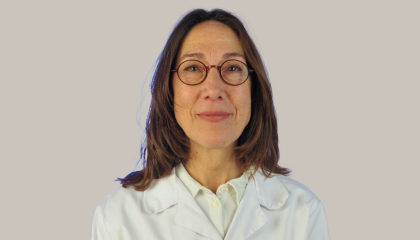Are you suffering from anxiety and looking for support from an English-speaking psychiatrist in Barcelona?
Anxiety is a normal feeling of worry or stress that we all feel when facing a range of challenging situations or when faced with a specific problem. However beyond a certain point, it becomes chronic characteristically when it is disabling and incompatible with daily life. At this point, it is important to consult a specialist before this disorder becomes more serious and makes pleasure impossible.
This mental health illness is diagnosable, treatable and should be recognised as soon as possible for effective help and support.
If you suffer from anxiety in any form and are looking for support, please make an appointment now with our psychiatric and mental health team.
Fast track your treatment
To book an appointment or speak with one of our friendly team, please get in touch using the options below.

General anxiety and anxiety disorders: what are they?
Firstly, disorders are diagnosed when the anxiety is sustained, reoccurring and long-lasting, occurs without any link to a real danger or threat and creates such suffering that it durably disrupts daily life.
These disorders are different from transient fear and anxiety because they are chronic. However, they can take different forms depending on the patient:
- headaches,
- muscle pain,
- persistent fatigue,
- insomnia,
- sweating,
- palpitations, etc.
- An object or a natural element (darkness, storm, blood...),
- An animal (fear triggered by the sight of a spider or arachnophobia, a snake, a mouse...),
- A situation (being at a height, being locked up or claustrophobia, being in a public place or agoraphobia...).
Obsessive behavioural disorders are characterised by a repetitive action completed by the person in question, that are intended to temporarily relieve anxiety.
These actions usually concern specific themes or trigger points:
- Dirt and contamination,
- Sacrilege,
- Sexuality,
- Disorder,
- Fear of being responsible for disasters or the death of others...
The behaviour in question is repeated more and more often and eventually interferes with the patient's social and professional life.
Mental health is as important as physical health!
Our mental health and wellbeing professionals are here to listen to you and offer you personalised and comprehensive care so that you can regain your balance.

What are the causes?
The causes and origins of an anxiety disorder are difficult to determine and they are all too often hard to identify.
However, there are also well-identified factors that can cause states of anxiety, including:
- A stressful situation with physical or psychological exhaustion, for example chronic stress at work;
- An illness or death in the family or circle of friends;
- A precarious work situation;
- A new stage in life (e.g. retirement, divorce, children leaving home);
- The hormonal changes of the menopause;
- The use of certain medications;
- Alcohol or drug use;
- A traumatic experience (e.g. a physical attack);
- Psychological conditions such as depression or schizophrenia.
Finally, it is also important to know that anxiety can be a simple personality trait (anxious person) and therefore either a permanent disposition or a transient state occurring in certain circumstances.
How can these disorders be prevented?
Anxiety is a normal feeling. Preventive measures are therefore aimed at preventing temporary anxiety from becoming permanent, rather than avoiding the feeling completely and definitively.
Talking about your feelings is one of the best ways to avoid chronic anxiety and the onset of various disorders. If you need to, don't hesitate to talk to someone close to you, a doctor or a professional counsellor.
Similarly, regular physical activity helps to combat stress, relax and eliminate physical tension. Gentle disciplines such as yoga or tai chi are particularly recommended in this context.
Finally, eating a balanced and satisfying diet and reducing alcohol and coffee consumption can only be beneficial for people with a tendency to feel anxious.
Treatment of anxiety disorders at Turó Park Medical Clinic
In the psychiatry and mental health team of Turó Park Medical Clinic, we offer a multidisciplinary and personalised approach to the treatment of anxiety disorders and the improvement of the patient's psychological, social and family functioning.
Psychotherapeutic treatment
Psychotherapy is recommended for all disorders and can be undertaken in isolation or in conjunction with medication.
Cognitive and behavioural therapies have been most extensively studied in the treatment of anxiety and have been shown to be effective and long-lasting, provided that they are undertaken at least once a week for three to six months.
Cognitive behavioural therapy can use several techniques:
- Breathing and relaxation techniques to learn how to better manage anxiety.
- Behavioural techniques with gradual exposure to feared situations to desensitise the patient.
- Cognitive techniques focusing on irrational anxiety-provoking thoughts, aiming to modify the false beliefs that the person may have developed about themselves and the outside world.
- Other types of psychotherapy can also be used, such as analytic psychotherapy, which can help to uncover the underlying reasons for anxiety, by identifying early traumas from early emotional relationships.
Ericksonian hypnosis treatment
This hypnosis therapy is based on deep listening to the patient as well as on relational harmonisation.
In this sense, Ericksonian hypnosis is a brief therapy method which aims to slightly modify the state of consciousness in order to access the unconscious. Its aim is to allow the patient to draw on the resources necessary to resolve their problem.
One of its principal uses is stress and reduction of anxious states.
Medication management
As far as medication is concerned, antidepressants (generally serotonin and noradrenaline reuptake inhibitors) and anxiolytics (mainly benzodiazepines and buspirone) are the drugs generally used in the treatment of anxiety disorders in adults.
However, medication should only be prescribed in cases where the anxiety disorder becomes disabling and interferes with daily life. The basic treatment of anxiety disorders is mainly based on psychotherapy.
If your psychiatrist prescribes this type of treatment, it is important that you strictly adhere to the dosage and conditions of use recommended by the doctor, particularly with regard to alcohol.
Our mental health specialists


